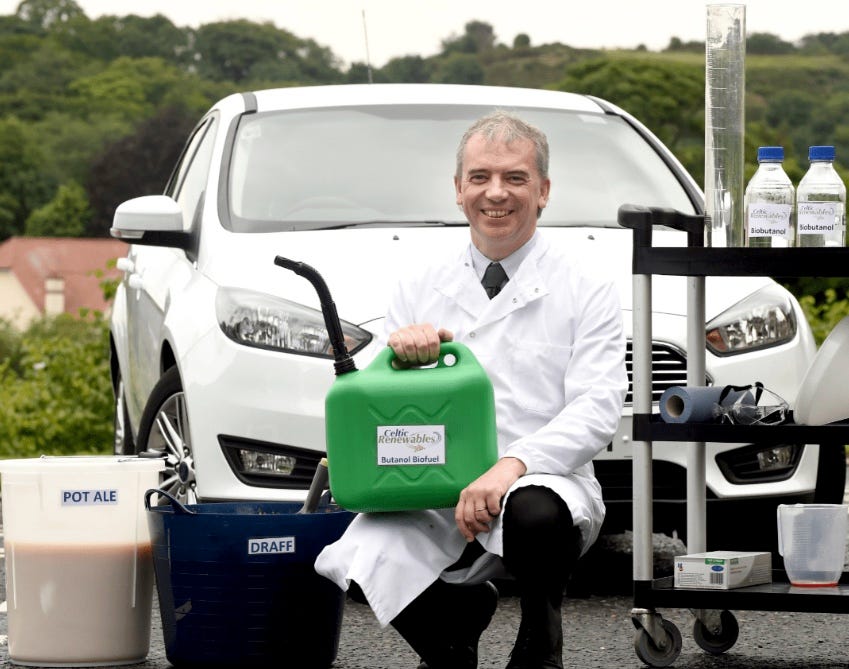Aye, sir, my car is powered by a very decent Scotch
Professor invents process to turn whisky waste into biofuel.
(A native of England, Matthew Diebel is a veteran journalist who has worked at NBC News, Time, USA Today and News Corp., among other organizations. Having spent his childhood next to one of the world's fastest bodies of water, he is particularly interested in tidal energy.)
That silky, smoky single malt you enjoy may only be a wee dram, but making it generates heaping helpings of waste as well as atmospheric pollution.
But soon you won’t need to feel so guilty; those byproducts could soon be powering your car.
As we reported last week, the production of drinkable alcohol first involves a mash, where grains are mixed with water to ferment to produce raw booze. Then the resulting liquid is refined and distilled in large kettles. Both involve heat and thus (mostly) fossil fuels.
And then come the solid and liquid wastes. For instance, according to the American Chemical Society, for every liter of whisky produced, about 5.5 pounds of solid by-products — known as draff — are left behind. There’s also just over two gallons of a liquid called pot ale and about 2.6 gallons of lees, a watery residue.
This amounts to 684,000 metric tons of draff and over 600 million gallons of pot ale every year, according to not-for-profit environmental organization Zero Waste Scotland. At present, some is used for animal feed while the rest goes into landfills or is dumped into inland or coastal waters.
Which is where Celtic Renewables comes in. Its founder, Prof. Martin Tangney, has invented a fermentation process that transforms whisky byproducts into biochemicals that can, when mixed with gasoline and diesel fuels, used to power your car.
The company, founded in 2011, uses a process called acetone-butanol-ethanol fermentation in which bacteria break down the sugars in the whisky draff and pot ale into acids, reports CNN. They in turn are further turned into solvents such as butanol and ethanol, which can be added to auto fuels.
The project is accelerating. Celtic Renewables says it has raised more than $52 million in financing, with backing from private investors, government grants and crowd funding, in addition to support from Napier University, where Tangney did his initial research.
Meanwhile, the company has constructed built Scotland’s first biorefinery last year, with the Grangemouth facility, which lies between Glasgow and Edinburgh, expected to be fully operational later this year.
Bottoms up.

